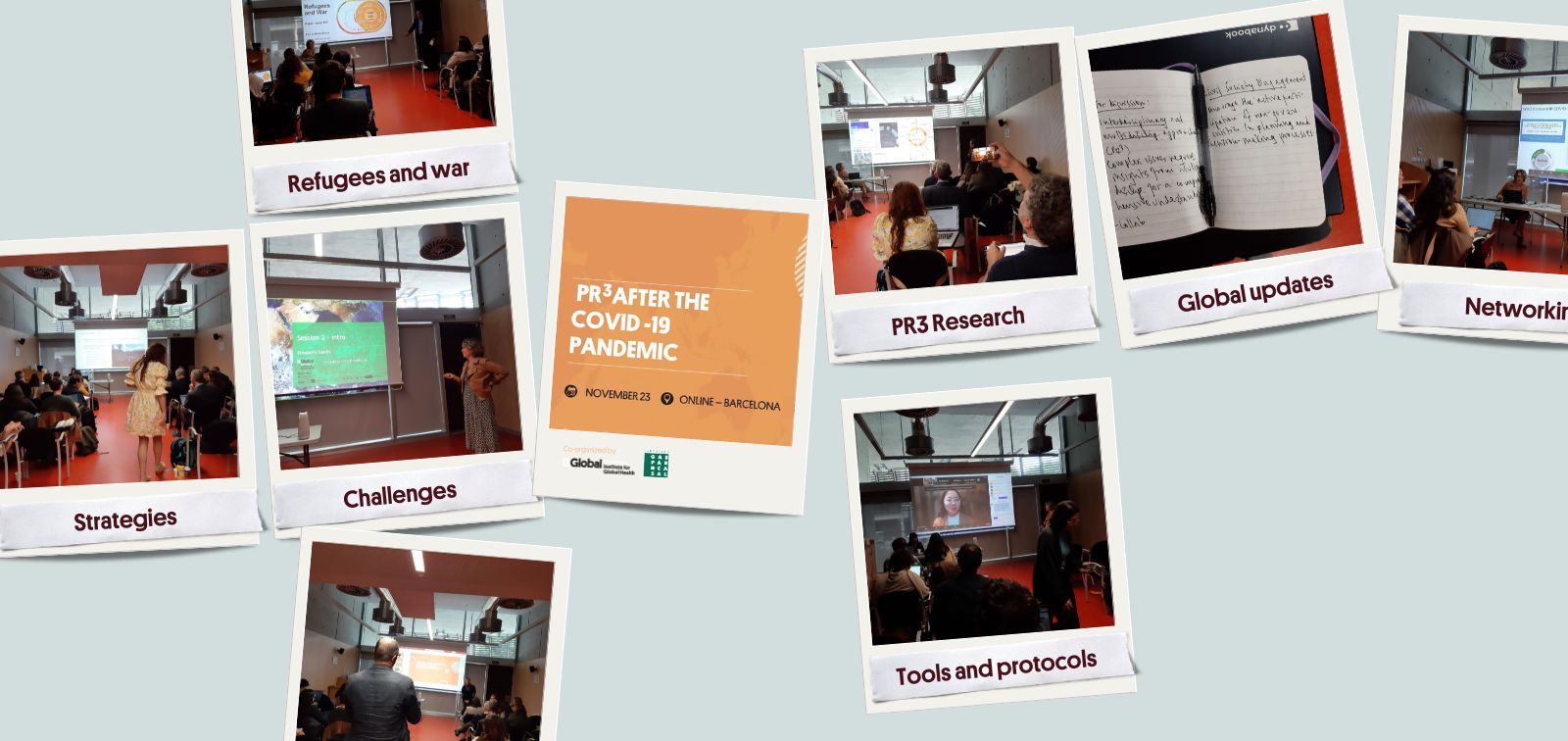How can Lessons Learned from COVID-19 and Other Crises be Incorporated into All-hazards Preparedness?
Experts from around the world meet in Barcelona to discuss how to prepare for pandemics, disasters and other risks
13.12.2023
Four years after the outbreak of the COVID-19 pandemic awakened us to the dangers of a global health crisis, the world is still not adequately prepared for a new pandemic, natural disaster or nuclear accident. The opportunity to build on the lessons learned is still open and progress has been made, but it is fragile and time may be running out, according to Elisabeth Cardis, Head of the Radiation Group and Chair of the Preparedness Hub at ISGlobal's.
For this reason, on 27 November, the Gaspar Casal Foundation and ISGlobal organised the conference PR3 after the COVID-19 pandemic, referring to the PR3 concept coined by ISGlobal (Preparedness, Response, Recovery and Resilience). Experts from different fields gathered at the Barcelona Biomedical Research Park (PRBB) to share the initiatives that have been developed since the A PR3 Challenge meeting held in May 2022. The meeting also addressed future challenges and included a closing session to establish collaborations and networks and plan future activities.
Antoni Plasència, Director General of ISGlobal and President of the European Global Health Research Institutes Network (EGHRIN), opened the event by stressing that "we need to invest in surveillance, promote the One Health approach, use antibiotics responsibly, strengthen health systems, collaborate globally and develop preparedness plans”.
Preparing for pandemics and disasters: working in silos doesn't work
Roberto Lucchini from Florida International University (USA) pointed to the increasing trend of chemical accidents (about 30 per year in Europe, and the number is rising). Oliver Razum from the University of Bielefeld (Germany) discussed how many European health systems are still ill-prepared to deal with war refugees. And lawyer Alicia del Llano, from the Gaspar Casal Foundation, highlighted the urgent need for legal preparation: "The challenges require concrete action and there is still a lack of concrete legislation". Health impact assessment (HIA), which is still in its infancy in Spain, can be a useful tool for implementing and evaluating PR3 plans, programmes and strategies with a particular focus on equity.
All speakers agreed that working in silos does not work and that multidisciplinary approaches are needed to address complex realities.
Tools and protocols for preparedness and response
The second part of the day reviewed the tools, knowledge and best practices available for different types of crises and in different countries and regions, such as the US NIEHS’s Rapid Acquisition Protocol Designer for Pre- and Post-Disaster Incident Data (RAPIDD) , launched in 2023 and used in the Arizona fires last June; the World Health Organization’s (WHO) Global Clinical Platform, a secure database of anonymised clinical data from patients in healthcare facilities around the world; or the protocols developed by the International Volcanic Health Hazard Network (IVHHN).
AI: the new revolution in weather forecasting
ISGlobal researcher Joan Ballester, who leads the European Research Council's EARLY-ADAPT project, spoke of heat and health early warning systems that are now beginning to benefit from artificial intelligence and its extraordinary ability to predict weather: "This is a real revolution," he said.
At the end of the day, the question of how to know if a preparedness plan really works hung in the air. Elke Wynberg, from the Erasmus MC in the Netherlands, summed it up humorously: “The plan will have worked if people think we have overreacted”.



